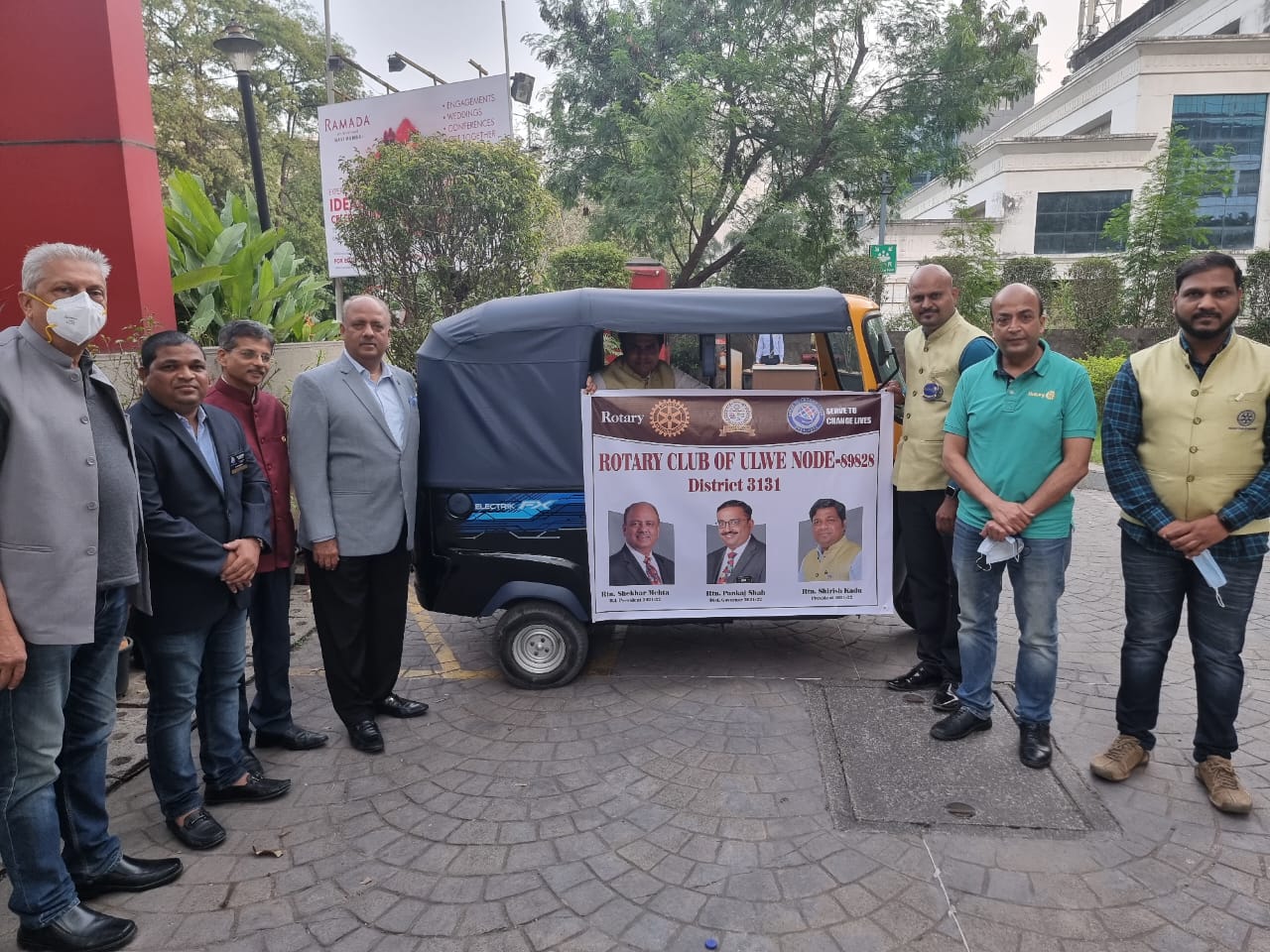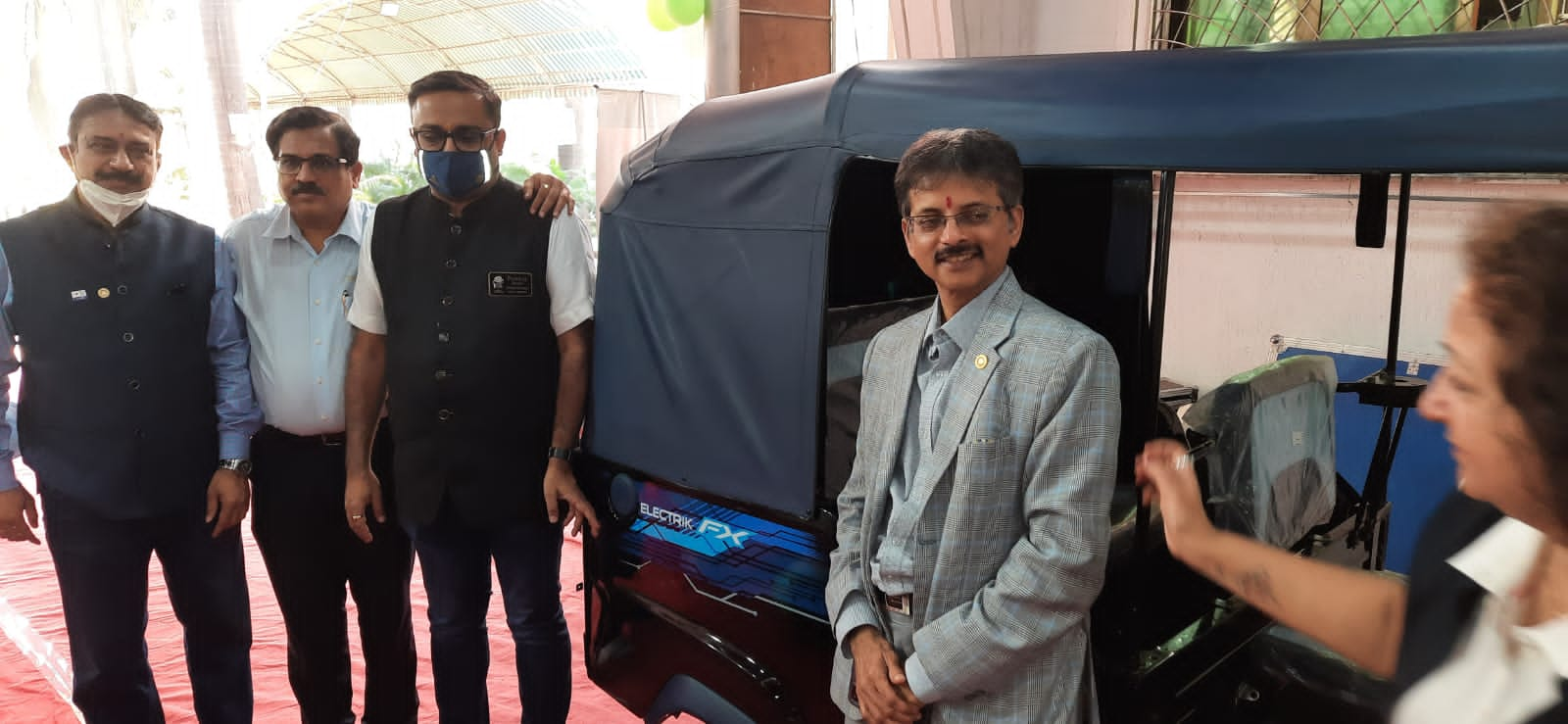E-Rickshaw Project
Indian Club Launches Rotary E-Rickshaw Project

Indian Club Launches Rotary E-Rickshaw Project
Description
On Jan. 19, Rotarians in Ulwe Node in India’s Maharashtra State handed over the keys of a three-passenger electric rickshaw to a delighted and deserving young man. Their donation of this vehicle will be his path out of poverty. The fact that it is electric will slash his operating costs 80%, compared to a diesel-powered auto-rickshaw. The students he ferries to and from school will pay significantly lower monthly fares.
His rickshaw won’t emit diesel exhaust, a factor in India’s terrible burden of lung and cardiovascular disease. Even if he recharges with coal-generated electricity, the E-auto rickshaw will be responsible for 25 fewer tons of CO2 emissions over its 10-year useful life than a diesel model. As solar-powered electric charging stations come online in India, these electric rickshaws will be even greener.
The potential impact of adopting this innovation is huge. “India has close to 2 million 3-wheeler passenger auto-rickshaws that are approved by Regional Transport Offices (RTOs),” explains Jaideep Malaviya, Chairperson in Renewable Energy and Climate Change for D 3131. “It is a common form of urban transport as a vehicle for hire and for private use in many countries around the world. The 7th focus area of “Supporting the Environment” fascinated the Rotary Club of Ulwe Node and members decided to pool funds to undertake this unique project on a pilot basis with the aim of generating mass awareness amongst auto-rickshaw drivers and also addressing climate change.”
The lithium-iron battery can power the rickshaw for up to 100 km per charge at speeds up to 50 km/hour, a significant improvement in range and speed over earlier models. It can be recharged in 4-6 hours. The electric rickshaws cost about the same as diesel-powered – an average of INR 300,000 (approximately $4,000 U.S.). Most drivers take out five-year bank loans to buy one. Obviously, a vehicle with dramatically lower operating costs will make a huge difference in the owner’s net income.
RC Ulwe Node chose this project from a list of several options developed for district Clubs by Rtn. Jaideep, a member of ESRAG’s Renewable Energy Task Force who was recently elected to the Board of the International Solar Energy Society.
“This project will inspire Rotary Clubs in South Asia region to consider activities to address the environment,” he says. The Indian government “has an ambitious target of substituting fuel-based passenger auto-rickshaws with electric auto-rickshaws in order to address climate change and reduce pollution. District 3131 plans to multiply this by involving all the Clubs under it, providing employment opportunities. Plans are afoot to set up solar charging stations by involving commercial entities. Since it is a gearless vehicle, Clubs also plan to train women drivers who can provide an additional income source in the family besides the husband.”
To learn more about the specifications of these new e-taxis and how the project was implemented, email Rtn. Jaideep.
